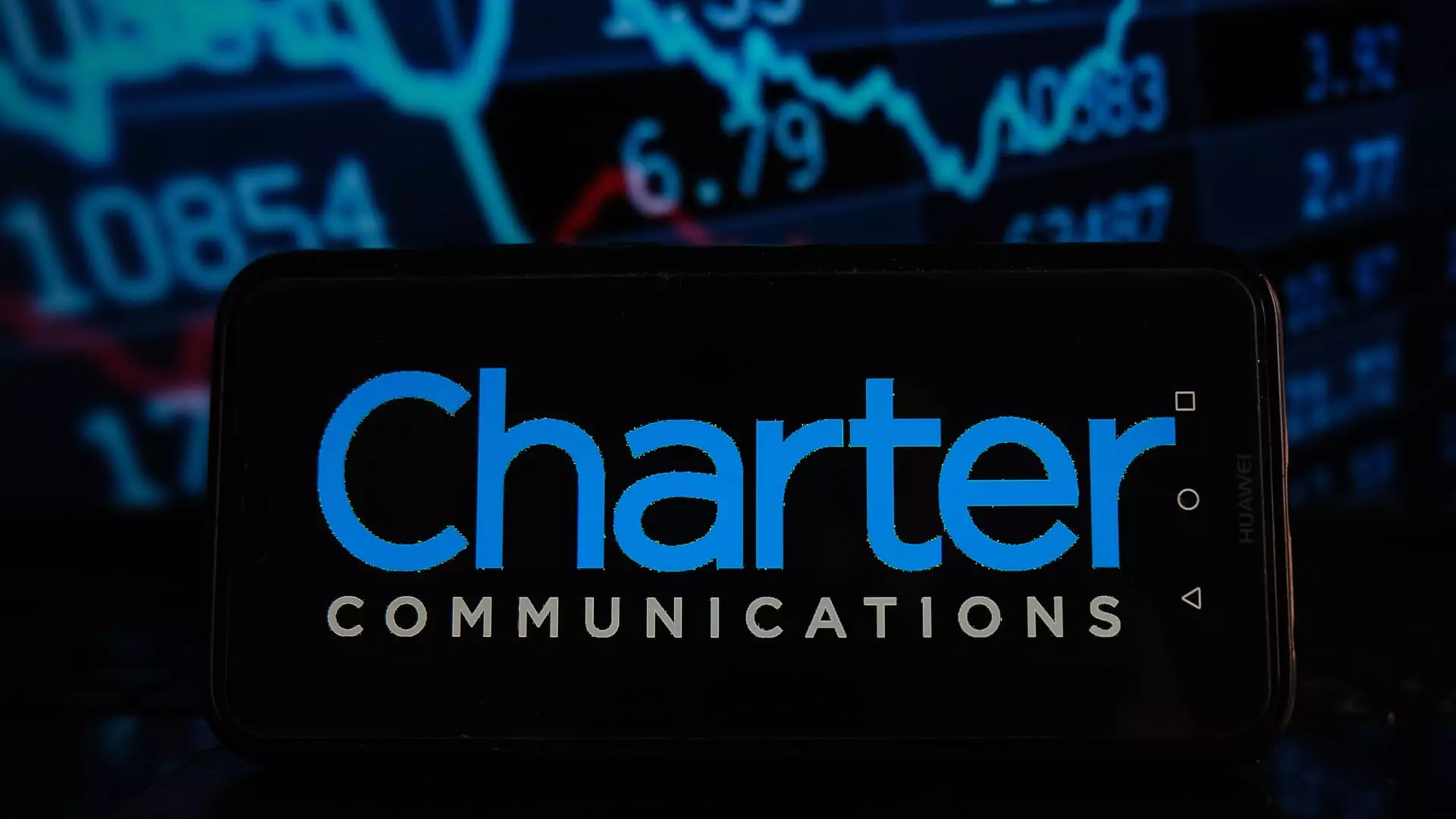In a bold maneuver that shakes the very core of the telecommunications landscape, Charter Communications and Cox Communications have initiated a transformative merger worth a staggering $34.5 billion. While some may herald this merger as a strategic masterstroke aimed at boosting market presence amidst intensifying competition, the reality is laden with complexity and concern. Although the corporate world thrives on consolidation, this union could herald a dark chapter, potentially stifling innovation and further entrenching monopolistic practices in an industry already accused of neglecting consumer needs.
The Numbers Behind the Deal
The merger’s valuation breaks down to $21.9 billion in equity complemented by $12.6 billion in net debt, an arrangement that sets off alarm bells for skeptics. Charter, now the second largest publicly traded cable entity in the U.S. behind Comcast, saw an immediate uptick in its stock prices post-announcement, driving a problematic narrative that prioritizes shareholder benefits over consumer welfare. Yes, while Charter appears to be basking in the glory of potential revenue increases, one has to question: at what cost?
The figures reveal troubling trends for the entire sector. Charter recently reported a loss of 60,000 broadband subscribers and a staggering decline of 181,000 cable TV customers in just one quarter. In response to a retreating cable market and formidable rivals like mobile 5G networks, the company’s aggressive pricing strategy raises eyebrows. Are these tactical moves sustainable in the long run?
The Consumer Crisis
As the merger fast approaches, one must critically assess how this shift will affect the millions of Americans who depend on these services. Charter, with a mobile customer base of 10.5 million, is seemingly attempting to cushion its declining cable business by diversifying. However, the emphasis on aggressiveness in pricing and bundling rather than improving service quality and customer experience reveals a fundamental flaw in strategy. It seems that the corporate giants are more focused on survival than fulfilling their obligation to provide value for consumers.
Moreover, the looming specter of monopolistic control raises further fears. With only two primary players in the cable market, there’s little incentive for either company to innovate. Instead, customers will face increased vulnerability to price hikes, subpar service, and a lack of choices—something many Americans already feel—without the viable competition to keep these companies honest.
A Corporate Love Affair with Power
While the executives of Charter and Cox may celebrate, the reality for the average consumer might be quite different. It’s worth noting that Charter CEO Chris Winfrey will continue to steer the combined entity, while Alex Taylor, the visionary behind Cox Enterprises, assumes the position of chairman. This boardroom camaraderie suggests an unsettling alliance that prioritizes corporate agendas over public interest—a clear warning sign for regulators and consumers alike.
As the combined company rebrands itself under the Cox Communications banner, one wonders whether this apparent consolidation of power will lead to any meaningful benefits or merely reinforce existing inequities. With $500 million in anticipated annual cost synergies, how much of that financial gain will trickle down to the end-users? Or rather, will we see yet another chapter in the saga of corporations lining their pockets while consumers receive the short end of the stick?
The Regulatory Landscape: A Test of Will
In a country increasingly scrutinizing corporate mergers and acquisitions, the Charter-Cox deal presents a litmus test for regulators. Can they strike a balance between fostering economic growth in the telecom sector without relinquishing consumer protection?
The telecommunications industry is already facing disruption and questioning its relevance in a fast-evolving digital age. To allow this merger to proceed unchecked would signal a dangerous precedent, one that should be challenged with utmost seriousness. As consumers take a backseat in these monumental corporate showdowns, the question remains: how much longer will we tolerate an industry that seems more focused on power grabs than providing a fundamental service?
In a field where innovation and customer-centric approaches should reign supreme, the impending merger could very well dictate the future landscape of American telecommunications. The stakes have never been higher, and the consequences of inaction more severe.

